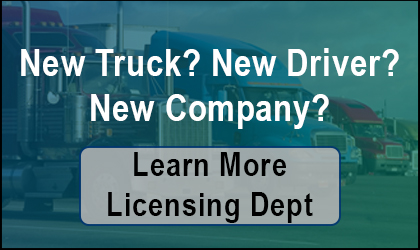ELD Compliance Questions
posted in Alerts, Blog, Uncategorized by Brian Gray
ELD Compliance Questions
With final rule-making set to be published by the end of this year, Electronic Logging Devices (ELD’s) will soon become the law of the land. With the right equipment and operational commitment, an ELD can be a very viable answer to the time, expense and frustration involved with being in compliance with Hours of Service Regulations. Without the right equipment and operational commitment, you can be placing your company at serious risk. You need to do your homework before you invest in an ELD system. Before you invest, make sure you have answers to a few key questions.
Your first question is to ask your vendor “does the unit meet the new FMCSA requirements for an ELD?” As of this writing, the details within the final rule are not known. If the answer is Yes, you may have a problem. A “yes” answer to your question may mean your vendor really doesn’t understand, from a compliance standpoint, what he’s selling. The correct answer to your question should be “the unit meets today’s requirements and as soon as the new requirements come out, any modifications necessary will be made to stay in compliance.”
The data reporting for an ELD will be very different than the reporting and record keeping required for the International Fuel Tax Agreement (IFTA) and International Registration Plan (IRP). The reporting requirements for a compliant ELD will be all about the Driver. Reporting for IFTA and IRP is all about the Truck. If you intend to use your ELD hardware and data for IFTA tax reporting, many more important questions must be asked. The correct answer can depend on the type of operation you run.
The data needed to report IFTA taxes is simply the total distance in each jurisdiction of your fleet and the total fuel purchased in each jurisdiction by your fleet within a 3 month time period. Most ELD’s may be able to supply the distance information of each truck for the tax computation but there are some that fail when it comes to being able to supply the supporting data required for IFTA compliance. Carrier’s buying systems with the intent of using the data for IFTA should be asking questions such as:
- Can detailed trip reports be run by a starting and ending date for each unit?
- Will the report identify the origin and destination?
- Will the report identify the routes of travel?
- Can the beginning and ending odometer for each unit be produced for this time period?
- Will the report calculate total trip distance along with distance within each jurisdiction?
- Will this data be available for the next 4 years in case of an audit?
Another important question is “how often does the ELD record the truck location through a GPS ping?” For Hours of Service compliance, indications are that the FMCSA will only require a location ping at each duty status change and once per hour. For IFTA and IRP purposes, a ping rate of once per hour will not satisfy the location detail required for distance calculations. For a long haul operation, where a truck rarely leaves the interstate, a ping rate of every 20-30 minutes may be acceptable to accurately record the trucks distance in each jurisdiction for IFTA purposes. For short haul operations, where trucks spend much of their time on highways and streets, a ping rate of 1-5 minutes may be necessary to accurately record distance. In general, ping rates over every 15 minutes will be looked at very carefully by an auditor.
In an IFTA or IRP audit, the auditor must be able to verify the accuracy of the equipment in calculating truck distance and will hold the carrier responsible if it does not or cannot be determined if it does or does not. If the ELD provider cannot provide the carrier with needed background data, the carrier is at risk of the hefty audit assessment, not the provider.
Lastly, operational commitment is a carriers internal practices with how they manage their equipment and data. Whether for Hours of Service compliance, IFTA compliance, or both, auditors will look at a carriers processes. They will look for things like does the equipment get installed in the truck with the first mile driven? What does the carrier do when a truck is driven without the ELD installed? Does the carrier have a process to audit the data for accuracy? How does the carrier handle edits of the data and does the carrier keep and audit trail? How does the carrier train their drivers on how to use the equipment? These questions and more will all be reviewed. The equipment can function perfectly but if managing the equipment is weak, the carrier can still not be in compliance.
It’s important to understand the differences in ELD compliance between the FMCSA’s Hours of Service requirements and IFTA tax reporting requirements. If you intend to use your ELD system for both of these compliance areas, asking these questions can help you make sure you have the right equipment for your operation.
If you are looking for an ELD solution, be sure to check into EROAD (www.eroad.com). They are the only device tested by the State of Oregon and proven reliable for accurately reporting the Oregon Weight/Mile tax. Call us for more information!







